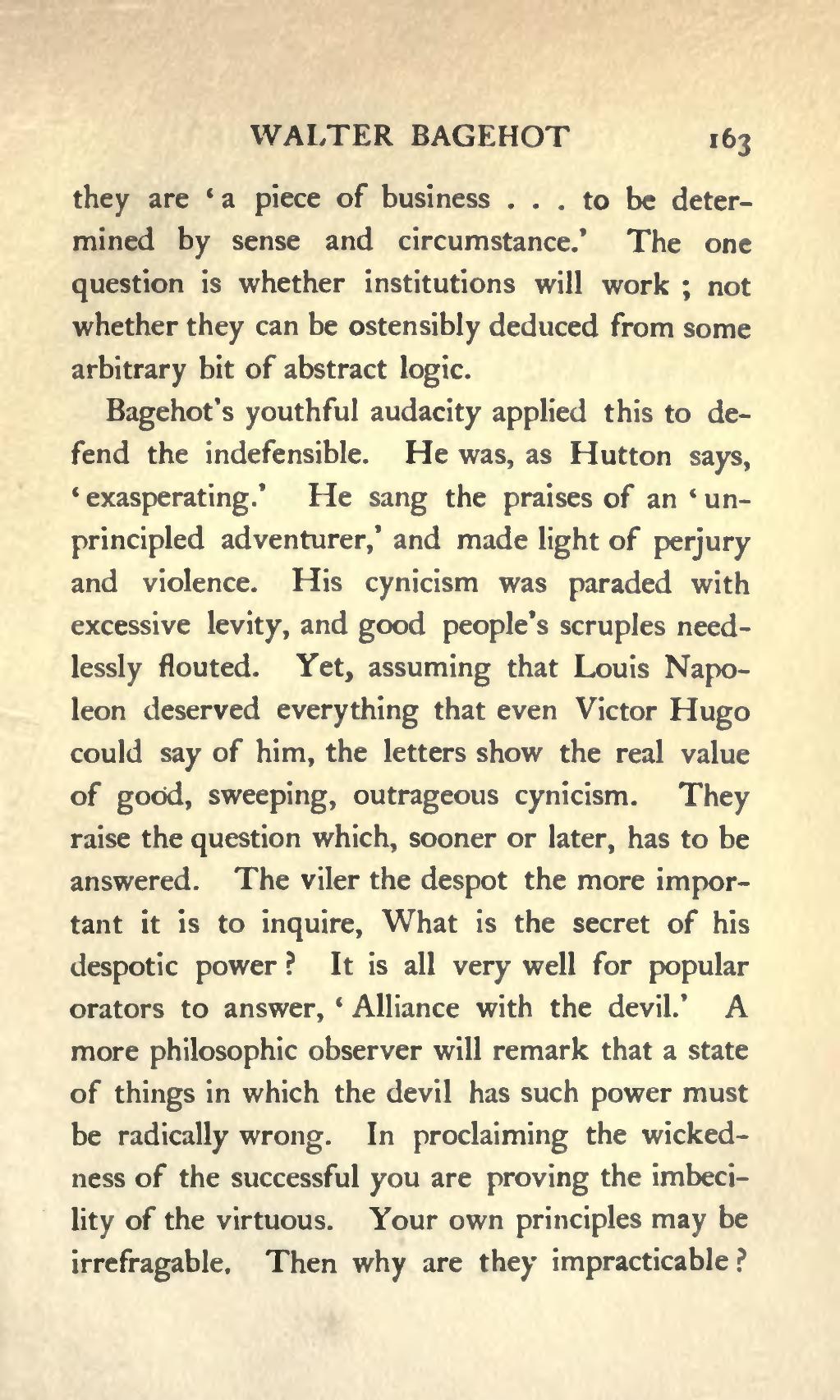they are 'a piece of business ... to be determined by sense and circumstance.' The one question is whether institutions will work; not whether they can be ostensibly deduced from some arbitrary bit of abstract logic.
Bagehot's youthful audacity applied this to defend the indefensible. He was, as Hutton says, 'exasperating.' He sang the praises of an 'unprincipled adventurer,' and made light of perjury and violence. His cynicism was paraded with excessive levity, and good people's scruples needlessly flouted. Yet, assuming that Louis Napoleon deserved everything that even Victor Hugo could say of him, the letters show the real value of good, sweeping, outrageous cynicism. They raise the question which, sooner or later, has to be answered. The viler the despot the more important it is to inquire, What is the secret of his despotic power? It is all very well for popular orators to answer, 'Alliance with the devil.' A more philosophic observer will remark that a state of things in which the devil has such power must be radically wrong. In proclaiming the wickedness of the successful you are proving the imbecility of the virtuous. Your own principles may be irrefragable. Then why are they impracticable?
